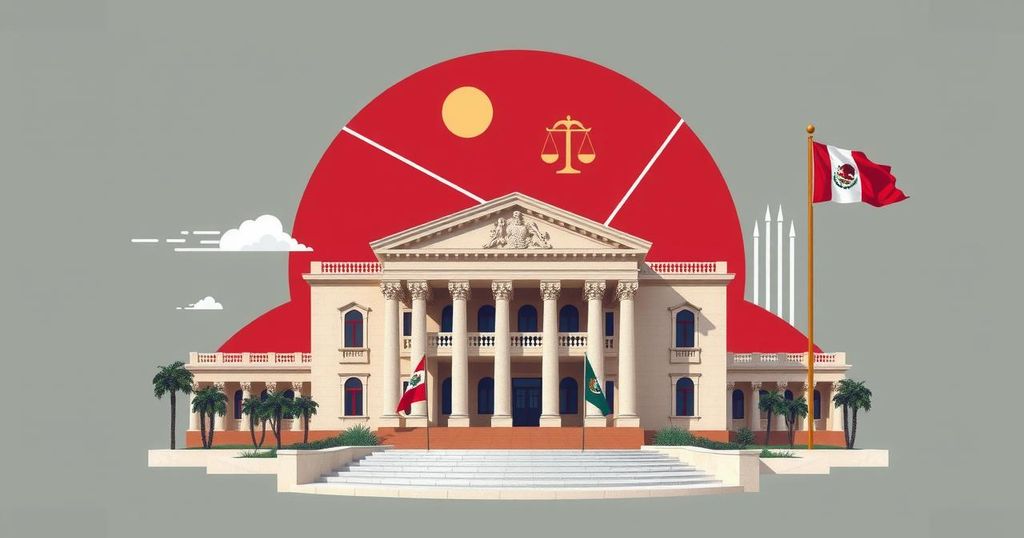Morena Solidifies Control Over Judiciary Amidst Disappointing Voter Turnout
The recent judicial elections in Mexico, led by Morena, showed shockingly low turnout at 13%, with many ballots spoiled. While President Claudia Sheinbaum touted it as a success, concerns arise about the increasing power of Morena over the judiciary and its implications for democracy in Mexico.
Mexico’s ruling party, Morena, has effectively seized control over the judiciary following the recent elections, which faced abysmally low turnout rates. Polls closed on June 1st, and President Claudia Sheinbaum called the election a historic success, though that assertion is debatable. Participation was just 13%, and over 20% of the votes were rendered spoiled or left blank, raising significant concerns about the democratic process.
Despite these troubling statistics, the outcome of the elections has undeniably strengthened Morena’s hold on the judiciary, which is the third branch of government in Mexico. With this consolidated grip, the implications for the political landscape are profound. Sheinbaum and her party appear to be making strategic moves to establish tighter control over every level of governance, further shifting the balance of power in their favor.
This disturbing trend comes amidst a backdrop of similar issues within Latin American democracies, such as those seen in Venezuela and Suriname. A recent article from our Americas section noted Suriname’s electoral process, which has also been marred by chaos. The similarities in these narratives highlight ongoing systemic challenges across the region, and how fragile democratic institutions can become when faced with powerful political factions.
The situation in Mexico raises alarms regarding the direction in which the country is heading. Critics argue that low voter turnout and widespread disillusionment with the electoral process reflect a troubling trend that could undermine public confidence in the government. If the judiciary, a crucial institution meant to uphold democratic principles, becomes overly aligned with a single ruling party, the risks for the rule of law and accountability could dramatically increase.
As the dust settles from the elections, one cannot help but wonder what this means for Mexico’s political future. The implications may extend well beyond the judiciary to influence legislation, social policies, and the rights of citizens. The international community is watching closely, and the fallout from these elections is likely to shape both Mexico’s domestic and foreign policy in the years to come.
In summary, the elections for Mexico’s judiciary have sparked significant concern due to extremely low voter turnout and a worrying number of spoiled ballots. Under the leadership of President Claudia Sheinbaum and the ruling party Morena, the judiciary’s consolidation into their control could pose serious threats to the integrity of Mexico’s democratic framework. The situation calls for vigilant scrutiny and mobilization by the public to ensure that democratic principles remain intact in the face of such political maneuvering.
Original Source: www.economist.com




Post Comment